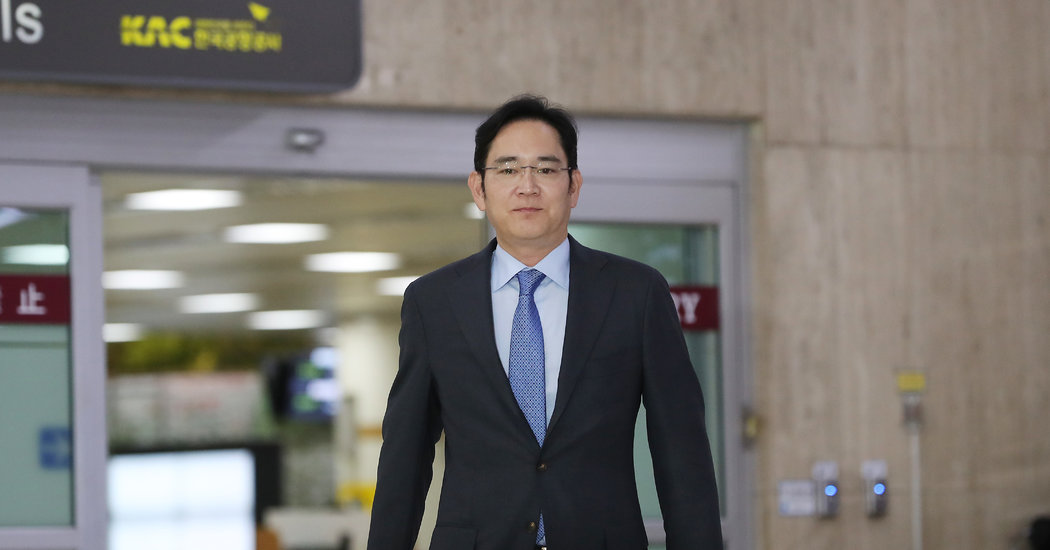
SEOUL, South Korea — South Korea’s top court issued a ruling on Thursday that could result in more prison time for Samsung’s de facto leader, who was freed last year after being jailed for bribing the country’s since-impeached president.
The Supreme Court ruled that an appeals court had underestimated the value of the bribes that Lee Jae-yong, Samsung’s vice chairman, also known as J.Y. Lee, had provided to former President Park Geun-hye and a friend of Ms. Park’s. Mr. Lee was released from prison in February of last year on the basis of the appeals court’s ruling.
The ruling Thursday spells trouble for Mr. Lee and Samsung, a pillar of South Korea’s economy and one of the world’s largest technology companies, because it raises the possibility that he will be imprisoned again. The Supreme Court sent Mr. Lee’s case back to a lower court for retrial.
In August 2017, a Seoul district court sentenced Mr. Lee to five years in prison for offering 8.6 billion won, or $7 million, in bribes to Ms. Park and to Choi Soon-sil, a longtime friend of the president who was central to the bribery scandal that drove Ms. Park from office and led to her imprisonment.
But the appeals court, in finding that the bribes had totaled just 3.6 billion won, reduced Mr. Lee’s prison term to two and a half years and suspended the sentence, setting the stage for the Supreme Court’s ruling on Thursday.
The appeals court must rule on Mr. Lee’s case again, and it will be required to honor the Supreme Court’s opinion unless it is presented with a compelling new evidence in favor of Mr. Lee.
On Thursday, Samsung expressed deep regret over the episode and vowed to “avoid a recurrence of past mistakes.” Mr. Lee essentially leads the company because its chairman, Mr. Lee’s father, Lee Kun-hee, is seriously ill.
For months during 2016, hundreds of thousands of protesters held weekly rallies in central Seoul demanding that Ms. Park be removed from office for corruption. The National Assembly impeached her on charges of bribery and abuse of presidential power in December of that year.
The Constitutional Court upheld the lawmakers’ decision in March 2017, and Ms. Park became the first South Korean leader to be removed from office through parliamentary impeachment.
The case exposed the entrenched collusive ties between powerful South Korean politicians and Samsung, as well as other huge, family-controlled conglomerates known as chaebol.
As part of the corruption investigation into Ms. Park, prosecutors indicted Mr. Lee on charges that he had provided bribes to Ms. Park and her friend, Ms. Choi, in return for the government’s support for moves meant to tighten his control over the Samsung conglomerate.
Last August, Ms. Park was sentenced to 25 years in prison and Ms. Choi to 20 years.
